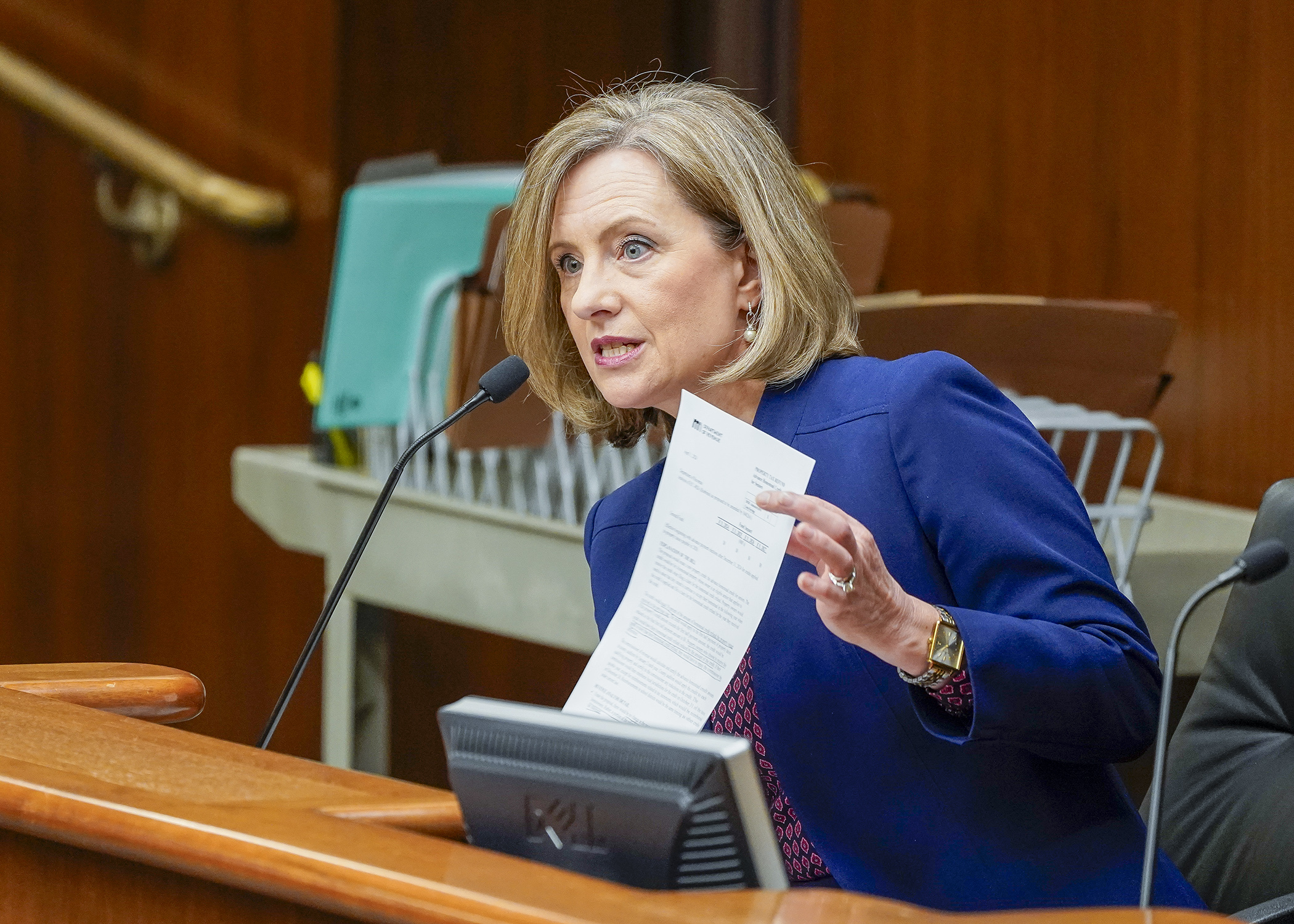Seniors could split their property tax refunds under House bill

Two property tax refunds are better than one.
At least that’s the idea behind HF4826, a bill sponsored by Rep. Kristin Robbins (R-Maple Grove) that would establish a system by which seniors could receive an advance payment of half of their homestead credit refund in the spring and the rest in the fall.
The House Taxes Committee laid the bill over, as amended, Tuesday for possible inclusion in a larger tax bill.
“This fall, I heard from so many senior homeowners in my district whose homes are totally paid off,” Robbins said. “They want to stay in their homes, and they struggle with cash flow. I wondered what to do, and then when we made the advance credit payment for the child credit, I thought, ‘Why couldn’t we do that for seniors?’”
While those seniors wouldn’t get a check from the state, they might be writing a smaller one, as it’s a reduction in their property tax bill. Instead of paying the full amount of their property taxes in the spring and having their fall payment reduced by the homestead credit refund, the proposed change would result in a smaller sum being sent the government’s way both early and late in the year.
And it doesn’t mean that they’re cutting into the operating budgets of their municipality or school district: They’d get the same amount of money, but the state would be covering part of their payment.
The change would be effective for property taxes paid in 2026, with applications for the advance credit beginning in 2025. Those eligible would need to be age 65 or older, or, in the case of married claimants filing a joint claim, one spouse must be 65 or older and the other 62 or older.
Property owners would need to attest that they intend to continue to occupy their homestead in the following year when the credit is applied and file a claim for the homestead credit refund for the year they received the credit.
While Robbins referred to the bill as “revenue neutral,” Rep. Liz Olson (DFL-Duluth) pointed out that there is a General Fund cost for administration of the credit in fiscal years 2025 through 2027 that would be $158,000 in the current biennium and $234,000 in the next.
If all approximately 275,000 senior property tax refund filers elected to receive the 50% advance credit for the following year, the Department of Revenue projects the total paid out in advance credits would be about $190 million.
Related Articles
Search Session Daily
Advanced Search OptionsPriority Dailies
Speaker Emerita Melissa Hortman, husband killed in attack
By HPIS Staff House Speaker Emerita Melissa Hortman (DFL-Brooklyn Park) and her husband, Mark, were fatally shot in their home early Saturday morning.
Gov. Tim Walz announced the news dur...
House Speaker Emerita Melissa Hortman (DFL-Brooklyn Park) and her husband, Mark, were fatally shot in their home early Saturday morning.
Gov. Tim Walz announced the news dur...
Lawmakers deliver budget bills to governor's desk in one-day special session
By Mike Cook About that talk of needing all 21 hours left in a legislative day to complete a special session?
House members were more than up to the challenge Monday. Beginning at 10 a.m...
About that talk of needing all 21 hours left in a legislative day to complete a special session?
House members were more than up to the challenge Monday. Beginning at 10 a.m...